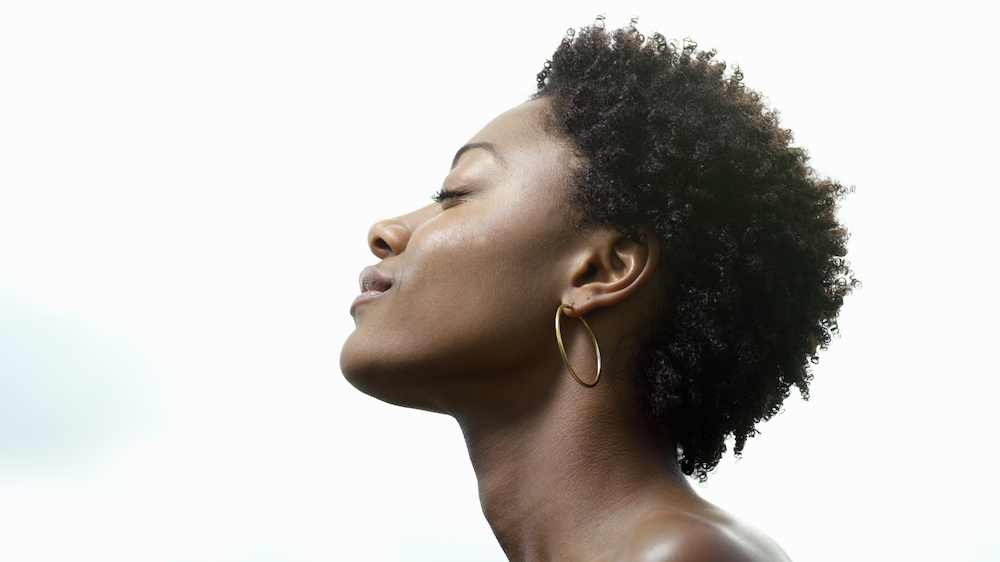If you’re interested in sharing your opinion on any cultural, political or personal topic, create an account here and check out our how-to post to learn more.
____
The mental health impact of COVID-19 may be heavier for Black Americans. Black people typically experience mental health problems such as sadness, hopelessness, worthlessness and feeling that everything is an effort at rates higher than their white counterparts. And suicide seems to be becoming more prevalent in Black communities. Compared to white Americans, Black Americans are more likely to be working low-wage jobs with few guaranteed health benefits. People working these types of jobs are more subject to lay-offs and poor access to health care. These challenges existed for Black people before the coronavirus outbreak. Now things are becoming even more complicated.
How do Black people protect their mental health in a time like this? The Serenity Prayer may have some answers: directly tackle the things that cause us mental distress, practice acceptance with the things we cannot control and be clear on the differences. No one can control how long this outbreak will last. No one can control the government actions (e.g., shutting down restaurants and other public spaces) taken to decrease new infections.
You can control what you allow to take up space in your head. For example, you don’t have to keep scrolling on Instagram, allowing yourself to read about every celebrity that has a positive coronavirus test result. You don’t have to allow other people to talk obsessively about their anxieties related to fears of an approaching apocalypse. You have the power to control these things. And you’re not being mean when you tell someone, “Hey, I can’t listen to that right now. Would you like to talk about something else?” In fact, you are prioritizing your mental health and setting an example for that person about how to set and reinforce boundaries. It is one thing to listen to someone discuss their fears. It is another thing to listen to someone obsess over their fears.
The coronavirus outbreak may be an opportunity to not only survive but mentally strengthen yourself during this time of social distancing and potential country-wide lockdowns. Below are some strategies about how to protect and strengthen your mental health during this outbreak.
1. Talk to the people most important to you.
You may not want to reach out and touch somebody’s hand right now, as Diana Ross once implored us. However, you can still make the world a better place by being there for others and allowing them to be there for you. I recommend picking up the phone instead of texting. Hearing a loved one’s voice can do wonders to relax your central nervous system. Video calls are even better because you get to see someone smiling back at you.
2. Engage in those creative projects or hobbies you’ve been putting off.
Being stuck inside could be the perfect opportunity to let your creative juices flow. Finish that mixtape you started working on in GarageBand, catch up on the latest Instagram dance challenge or start that journal you’ve been wanting to use to express your deepest emotions and brilliant ideas.
3. Take a look in a book.
Reading never goes out of style, just ask LeVar Burton. Transport yourself away from the crazy world of the coronavirus into a world of Black family drama, aliens saving human beings or loving your natural beauty. A Google search can help you find free books and audio books online.
4. Stream a new documentary about Black life.
Now is a great time to learn something new about your culture. Research has shown that racial pride contributes to better coping. Learn about Aretha’s Franklin’s popular gospel album, André Leon Tally’s influence on fashion and hip-hop, or Black women’s experiences starting their own businesses.
5. Use this time to prep for the next step in your life.
How many times have you said to yourself that you could apply for a new job if you only had enough time? Well, now you do. Use this time to build up your foreign language or software skills, update your resume or take an online class so that when the COVID-19 diagnoses start to decline, you’ll be better equipped to pursue new ventures.
6. Rest.
If we’re stuck in the house, you might as well catch up on rest. Take some naps. Use meditation or prayer to calm your nerves. Take a long shower or bath. Light a candle or some incense and sit in silence. Take this time to chill when you can.
It’s likely that we’ll all get through this outbreak. Protect your mental health in the meantime.
____
Jonathan Mathias Lassiter, PhD is a licensed clinical psychologist, professor, and author. His book Black LGBT Health in the United States: The Intersection of Race, Gender, and Sexual Orientation won the Gay and Lesbian Medical Association’s Achievement Award in 2017. Follow him on Twitter at @matjl.
